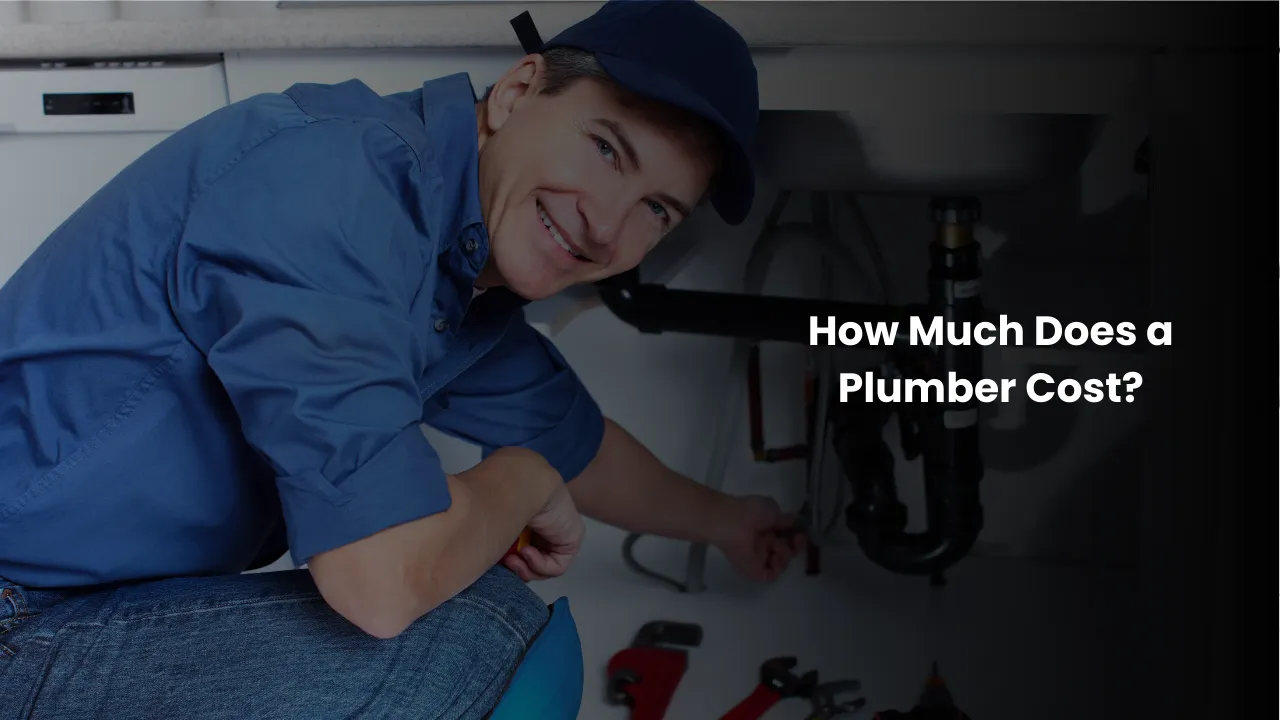Plumbing issues can strike at any time, leaving homeowners scrambling to find a reliable professional. Understanding the costs associated with hiring a plumber can help you budget for unexpected repairs and make informed decisions. This article explores the factors that influence plumbing costs and provides insights into average pricing for various services.
Understanding Plumber Costs
The cost of hiring a plumber can vary significantly based on several factors, including the type of service required, the plumber’s experience, and your location. On average, homeowners can expect to pay between $175 and $480 for plumbing services, with most jobs falling around $327. However, this range can expand or contract depending on the complexity of the task at hand.
Hourly Rates vs. Flat Fees
Plumbers typically charge either by the hour or a flat fee for specific services. Hourly rates usually range from $45 to $150, with more experienced master plumbers commanding higher fees. Some plumbers offer flat rates for common jobs, which can be beneficial for straightforward tasks. When considering hourly rates, keep in mind that many plumbers have a minimum service call-out fee, often between $50 and $200, which covers their initial travel and diagnostic time.
Factors Affecting Cost
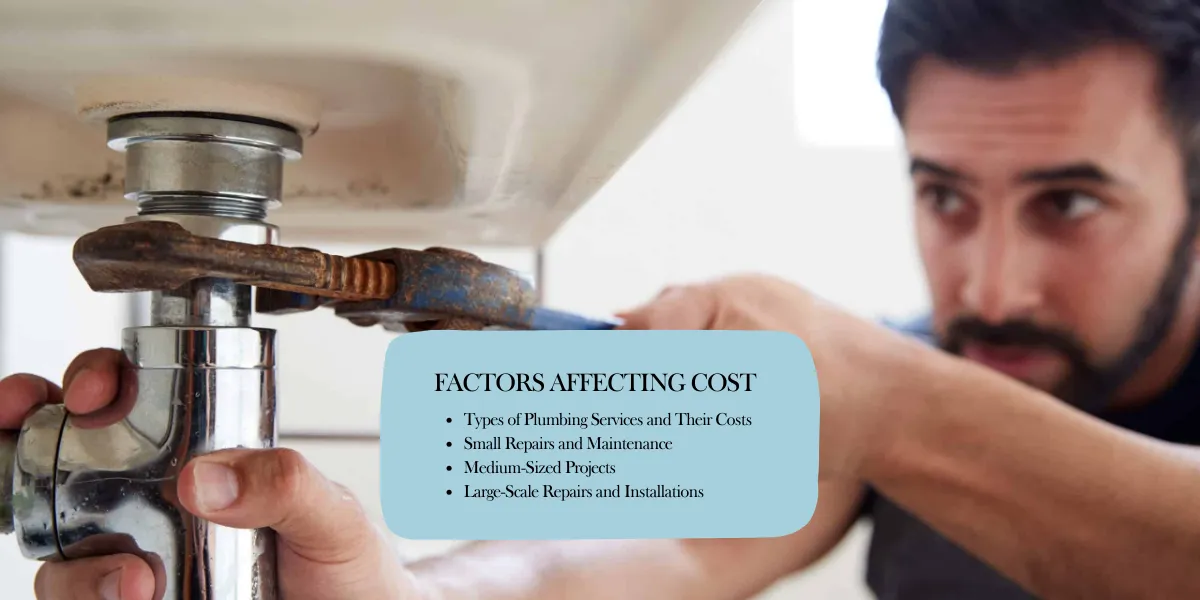
Several factors can influence the final cost of your plumbing service:
Types of Plumbing Services and Their Costs
Understanding the average costs for common plumbing services can help you gauge whether a quote is reasonable. Here’s a breakdown of typical pricing for various plumbing tasks:
Small Repairs and Maintenance
Minor plumbing issues like unclogging a sink or fixing a leaky faucet typically cost between $75 and $250. These jobs are usually quick and require minimal materials, making them more affordable.
Medium-Sized Projects
Installing new fixtures, repairing toilets, or addressing minor pipe leaks fall into the medium-sized project category. Expect to pay between $150 and $500 for these services, depending on the specific requirements and any necessary parts.
Large-Scale Repairs and Installations
Major plumbing work, such as fixing a water heater, repairing a sump pump, or addressing extensive pipe damage, can cost anywhere from $500 to $800 or more. These projects often require more time, expertise, and materials, driving up the overall cost.
Tips for Managing Plumbing Costs
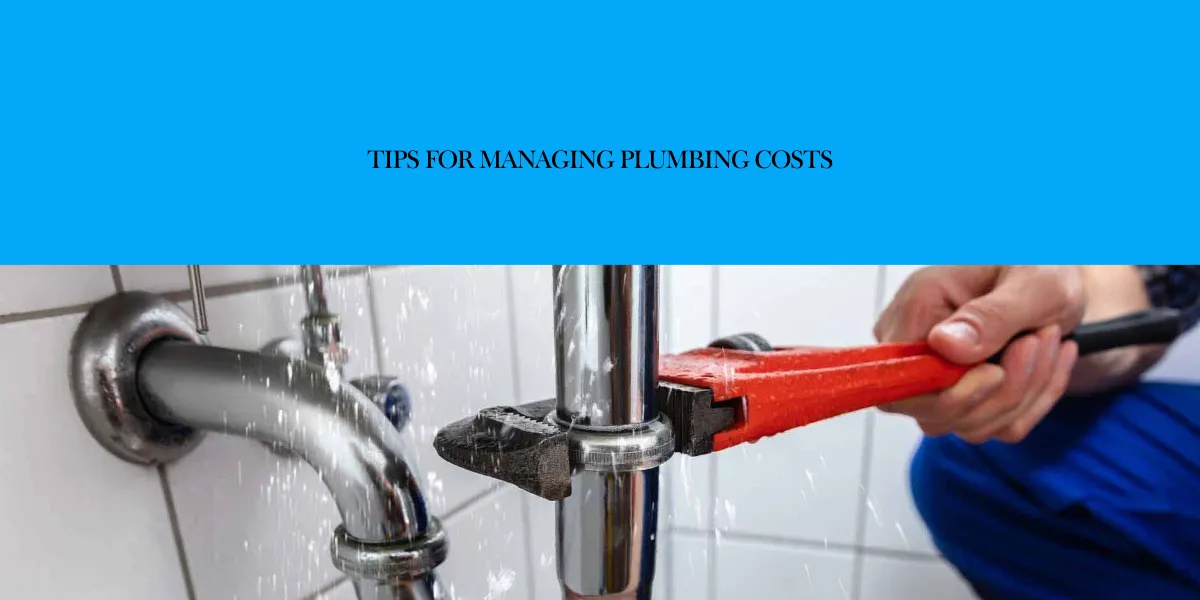
While plumbing services can be expensive, there are ways to manage costs effectively:
- Regular maintenance can prevent costly emergencies.
- Get multiple quotes for large projects to ensure competitive pricing.
- Ask about any available discounts or package deals for multiple services.
- Consider purchasing your own fixtures or parts if you’re comfortable doing so, as this can sometimes reduce overall costs.
How Much Does It Cost to Replumb a Whole House?
Replumbing an entire house is a significant undertaking that can greatly improve your home’s plumbing system, water quality, and overall value. However, the cost of such a project can vary widely depending on several factors. This article will explore the average costs associated with replumbing a whole house and the key factors that influence the final price.
Average Cost Range
The cost to replumb a whole house typically falls between $4,000 and $15,000. However, some projects can cost as little as $1,500 or as much as $20,000 or more, depending on various factors. Most homeowners can expect to pay around $6,000 to $8,000 for a complete replumb of an average-sized home.
Factors Affecting the Cost
The size of your home is one of the most significant factors in determining the cost of replumbing. Larger homes require more materials and labor, which increases the overall cost. A small, 1,000-square-foot home might cost $4,000 to $6,000 to replumb, while a 3,000-square-foot home could cost $10,000 to $15,000 or more.
The layout of your home also plays a role. Multi-story homes or those with complex plumbing systems may require more work and, consequently, higher costs.
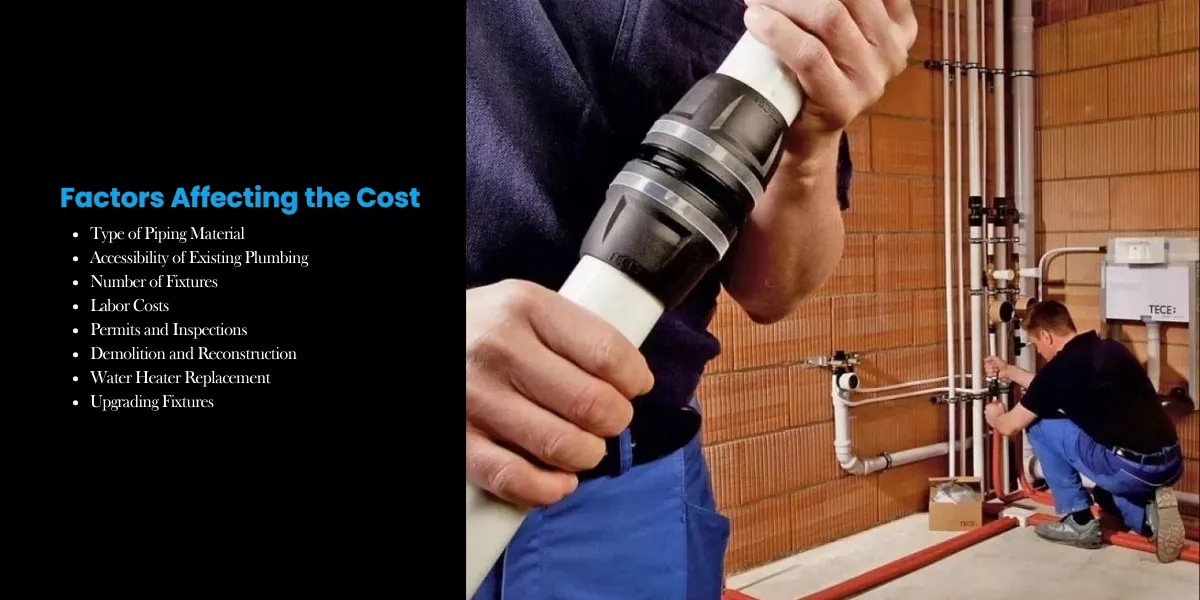
Type of Piping Material
The choice of piping material significantly impacts the cost of replumbing. Here are some common options:
- PEX (Cross-linked Polyethylene): $0.50 to $2 per linear foot
- Copper: $2 to $4 per linear foot
- CPVC (Chlorinated Polyvinyl Chloride): $0.50 to $1 per linear foot
PEX is often the most cost-effective option due to its flexibility and ease of installation. Copper, while more expensive, is known for its durability and longevity.
Accessibility of Existing Plumbing
The ease of accessing your current plumbing system affects labor costs. If pipes are hidden behind walls or under concrete slabs, more demolition and reconstruction work will be required, increasing the overall cost.
Number of Fixtures
The number of plumbing fixtures in your home, such as sinks, toilets, showers, and appliances, influences the cost. More fixtures mean more connections and more work, which translates to higher costs.
Labor Costs
Labor typically accounts for a significant portion of the total cost. Rates can vary depending on your location and the complexity of the job. In urban areas or regions with a higher cost of living, labor costs tend to be higher.
Permits and Inspections
Most localities require permits for major plumbing work. The cost of permits can range from $50 to $500 or more, depending on your location and the scope of the project.
Demolition and Reconstruction
If walls or floors need to be opened up to access pipes, you’ll need to factor in the cost of demolition and subsequent repairs. This can add several thousand dollars to the project.
Water Heater Replacement
While not always necessary, some homeowners choose to replace their water heater during a whole-house replumb. This can add $1,000 to $3,000 to the total cost.
Upgrading Fixtures
If you decide to upgrade plumbing fixtures during the replumb, this will increase your costs but can also add value to your home.
What factors influence the cost of hiring a plumber?
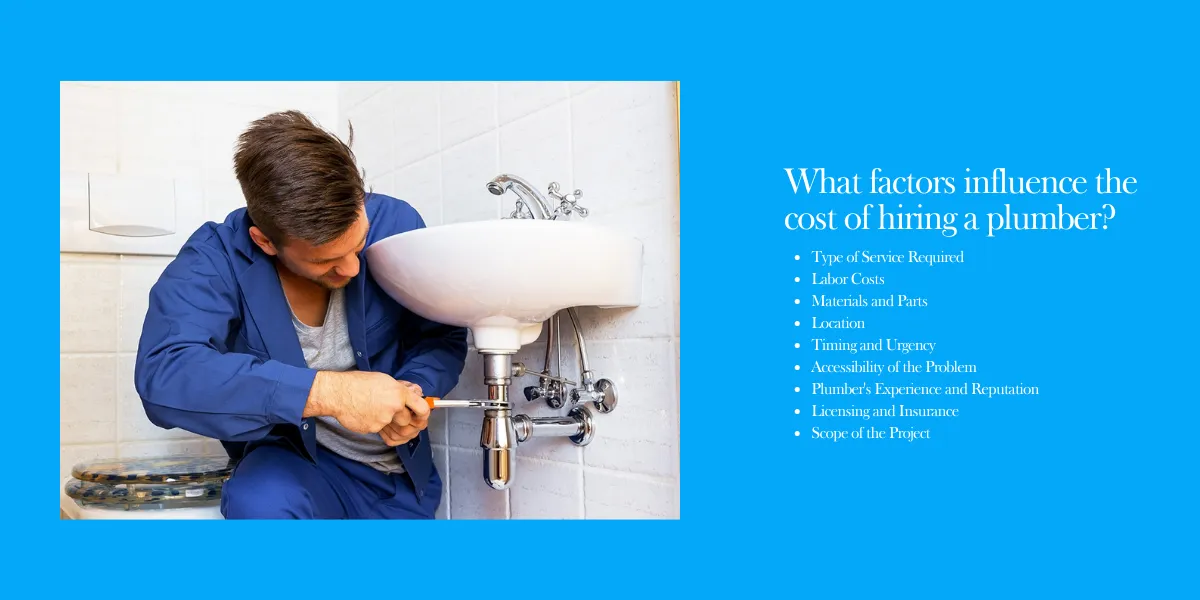
The cost of hiring a plumber can vary significantly based on several key factors:
Type of Service Required
The complexity and nature of the plumbing job greatly influence the cost. Simple tasks like unclogging a drain or fixing a leaky faucet are generally less expensive than complex repairs or installations such as replacing a water heater or repiping a house.
Labor Costs
Plumbers typically charge by the hour, with rates varying based on experience and expertise. Master plumbers or those with specialized skills often command higher rates. Labor costs can also increase for emergency services or work done outside of regular business hours.
Materials and Parts
The cost of necessary materials and replacement parts contributes significantly to the overall price. High-quality materials may be more expensive but can offer better longevity and performance.
Location
Geographic location plays a crucial role in determining plumbing costs. Urban areas with higher costs of living generally have higher plumbing rates compared to rural areas. However, rural locations might incur additional travel fees.
Timing and Urgency
Emergency services or after-hours calls typically come with premium rates. Plumbers may charge extra for immediate response or work done on weekends and holidays.
Accessibility of the Problem
If the plumbing issue is in a hard-to-reach area, such as behind walls or under concrete slabs, the job may require more time and effort, increasing the overall cost.
Plumber’s Experience and Reputation
More experienced plumbers or those with excellent reputations often charge higher rates. However, their expertise can lead to more efficient work and potentially fewer future problems.
Licensing and Insurance
Licensed and insured plumbers may charge more, but this offers protection and assurance of quality work.
Scope of the Project
The size and extent of the plumbing project affect the cost. A whole-house replumbing job will cost significantly more than a single fixture repair.
Conclusion
The cost of hiring a plumber can vary widely based on the service required, your location, and the plumber’s experience. While it’s natural to seek the most affordable option, remember that quality workmanship can prevent future issues and save money in the long run. By understanding the factors that influence plumbing costs and being prepared for potential expenses, you can make informed decisions about your home’s plumbing needs.


